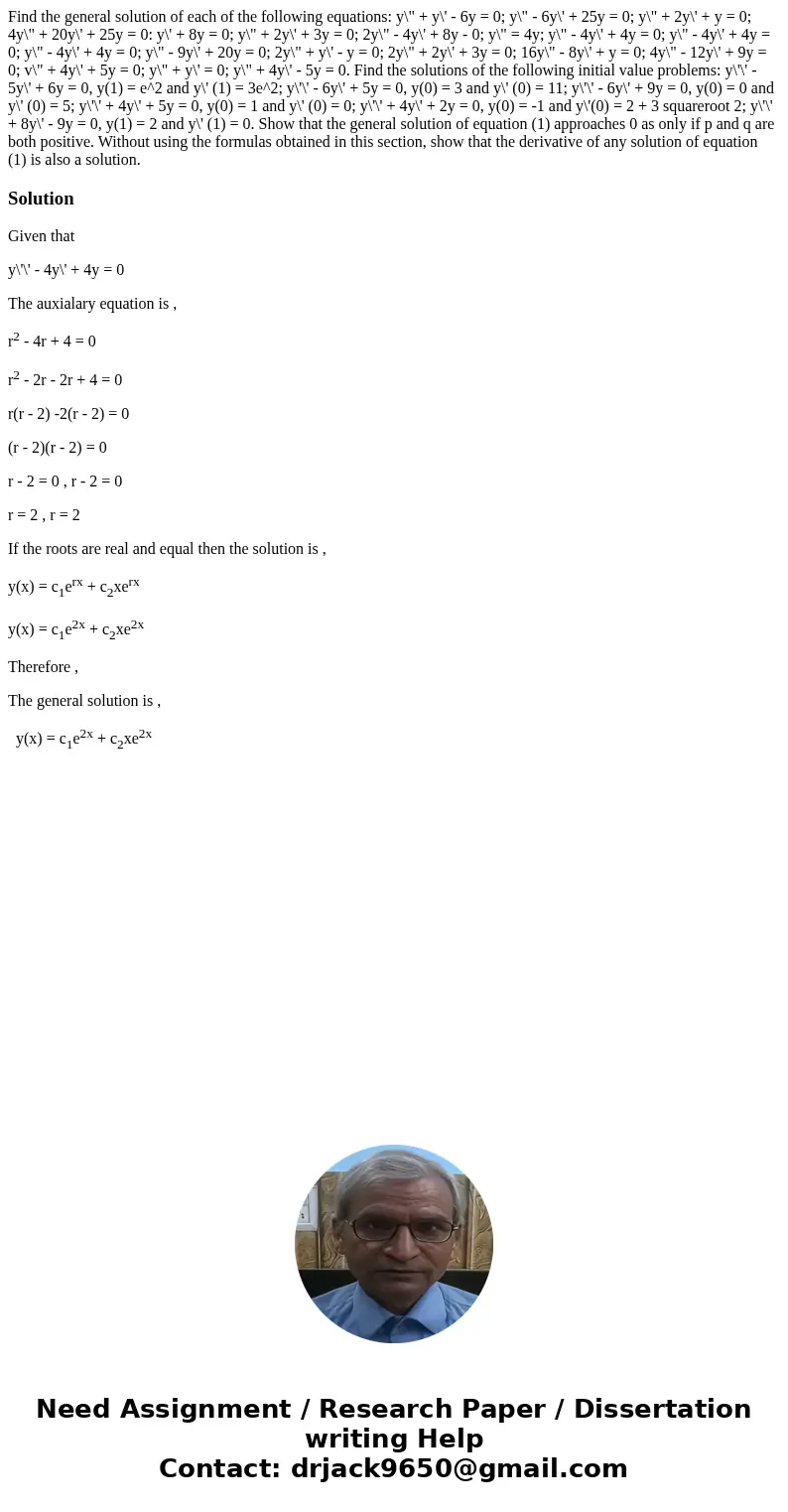Find the general solution of each of the following equations
Find the general solution of each of the following equations: y\" + y\' - 6y = 0; y\" - 6y\' + 25y = 0; y\" + 2y\' + y = 0; 4y\" + 20y\' + 25y = 0: y\' + 8y = 0; y\" + 2y\' + 3y = 0; 2y\" - 4y\' + 8y - 0; y\" = 4y; y\" - 4y\' + 4y = 0; y\" - 4y\' + 4y = 0; y\" - 4y\' + 4y = 0; y\" - 9y\' + 20y = 0; 2y\" + y\' - y = 0; 2y\" + 2y\' + 3y = 0; 16y\" - 8y\' + y = 0; 4y\" - 12y\' + 9y = 0; v\" + 4y\' + 5y = 0; y\" + y\' = 0; y\" + 4y\' - 5y = 0. Find the solutions of the following initial value problems: y\'\' - 5y\' + 6y = 0, y(1) = e^2 and y\' (1) = 3e^2; y\'\' - 6y\' + 5y = 0, y(0) = 3 and y\' (0) = 11; y\'\' - 6y\' + 9y = 0, y(0) = 0 and y\' (0) = 5; y\'\' + 4y\' + 5y = 0, y(0) = 1 and y\' (0) = 0; y\'\' + 4y\' + 2y = 0, y(0) = -1 and y\'(0) = 2 + 3 squareroot 2; y\'\' + 8y\' - 9y = 0, y(1) = 2 and y\' (1) = 0. Show that the general solution of equation (1) approaches 0 as only if p and q are both positive. Without using the formulas obtained in this section, show that the derivative of any solution of equation (1) is also a solution.
Solution
Given that
y\'\' - 4y\' + 4y = 0
The auxialary equation is ,
r2 - 4r + 4 = 0
r2 - 2r - 2r + 4 = 0
r(r - 2) -2(r - 2) = 0
(r - 2)(r - 2) = 0
r - 2 = 0 , r - 2 = 0
r = 2 , r = 2
If the roots are real and equal then the solution is ,
y(x) = c1erx + c2xerx
y(x) = c1e2x + c2xe2x
Therefore ,
The general solution is ,
y(x) = c1e2x + c2xe2x

 Homework Sourse
Homework Sourse